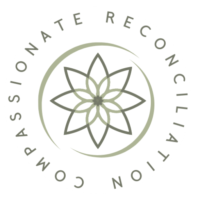
*This week we honor the life and passing of Thich Nhat Hanh, one of the world’s great teachers and mentors in the work of peacebuilding.
January 28, 2022
Dear Kundalini Yoga and Sikh Dharma Communities,
In our most recent (Jan. 14) update, Just Outcomes provided information on several Compassionate Reconciliation-related events, including an event being independently organized by one of the Compassionate Reconciliation Commission Advisory Teams which identifies as the Voices of the Exploited. Since sharing that announcement, we have received several questions from community members about the decision to share this information. These questions are related to our role, our impartiality, and the strength of our commitment to the interests of all facets of the KY/SD communities. We want to take this opportunity to clarify our role and intentions in sharing that information.
Goals of the Compassionate Reconciliation Project (CRP)
As context for our decisions regarding this process, we would like to restate the goals of the CRP, which are threefold:
- to address needs for healing and repair by women who experienced harm in relation to YB/SSS;
- to address needs for healing and repair by Second Generation community members who experienced harm within community-affiliated schools and youth programs; and,
- to address divisions that have occurred within the community as these experiences of harm have surfaced, and work toward healing in relationships.
Reconciliation as a Healing Journey
Recovery from adverse experiences is a personal process that varies between individuals and groups. Yet, from experience and research in the field of restorative justice (which informs reconciliation work) we can understand that there are some common elements that many people consistently express as contributing to healing. These elements include opportunities to tell the story of what happened to listeners who can validate them and show compassion. Healing can also include having opportunities to self-identify one’s own needs and have choices over how to address one’s experiences.
Based on our experience, events like the one which we publicized in our last newsletter can be important components within a process of healing and recovery for people who have experienced harm, and we willingly agreed to share the information in service of the stated goals of the Compassionate Reconciliation process.
Building a Shared Story
Community reconciliation and healing often involves the work of building a shared story of what has happened that is true to diverse lived experiences and resonates with ethics of the community. This is not dependent on a precise agreement on all facts. Instead, it means building a shared general understanding of different layers of experiences within the community, and giving each other space to find and express personal meaning about those experiences.
A shared story about community harm and healing cannot be prescribed by outsiders, including of course Just Outcomes. These choices are yours as community members (former and current) and leaders. Based on our experience and accompaniment of your communities, however, we would offer that any collective narrative which wholly dismisses the validity of the reports of harm will likely fail to resonate ethically with many community members, public onlookers, and of course those reporting harm themselves. Experience shows that community acknowledgment and recognition of harms is a vital component of any path to reconciliation.
Making Meaning
This type of acknowledgement is distinct from any specific meaning one might attach to it. The identity of this community, validity of the teachings, love of the teacher, or other related issues all may be seen differently, even while acknowledging and validating experiences of harm. Vilifying or “cancelling” Yogi Bhajan, or otherwise negating the impact that the teachings have had for a great many community members would also, in our assessment, fall short of providing a path to reconciliation. Reconciliation honors the dignity and humanity of all: those experiencing harm, those with responsibility for creating harm, and all others who have been impacted. We are deeply committed to a path of reconciliation that upholds the dignity of each person in their own lived experience.
Walking This Creative Path
Restorative justice is a pathway to reconciliation and healing that invites us into a consciousness where paradoxical truths can be lived and expressed without cancelling, negating, or undermining one another. Through compassion, dignity, and deep listening, we build each other up instead. This is the path we have been entrusted to serve. We invite you to travel it with us – and most importantly with one another.
Upcoming CRP Sessions and Trainings
Just Outcomes will continue to provide regular opportunities to learn more about Compassionate Reconciliation through monthly Q&A sessions (1 hour), and also through informational sessions on the foundations of restorative justice (4 hour sessions). Below are the upcoming dates:
Q&A sessions—have your questions related to the Compassionate Reconciliation Project answered. The 2022 sessions are as follows:
- Friday, February 25—7:30am-8:30amPST / 16:30-17:30GMT**
- Monday, March 28—4:00pm-5:00pmPDT / 23:00-00:00GMT
- Thursday, April 28—8:30am-9:30amPDT / 15:30-16:30GMT**
- Thursday, May 26—4:00pm-5:00pmPDT / 23:00-00:00GMT
**translation available
Restorative Justice 101 (4 hours)—learn more about the meaning of restorative justice, how it can benefit communities, and how restorative principles are guiding the Compassionate Reconciliation Project. The next 3 sessions are as follows:
- Thursday, February 24–1:00pm-5:00pmPST / 21:00-01:00GMT
- Wednesday, April 6– 8:00am-12:00pmPDT / 15:00-19:00GMT**
- Monday, May 16–1:00pm-5:00pmPDT / 20:00-00:00GMT
**translation available
We will keep you informed of other opportunities for training and participation, as scheduling is confirmed.
Yours in kindness, compassion, and gratitude,
Catherine Bargen, Matthew Hartman and Aaron Lyons
Sign up here to receive regular updates from Just Outcomes about the Compassionate Reconciliation Project. By signing up you will receive updates about Compassionate Reconciliation only.
